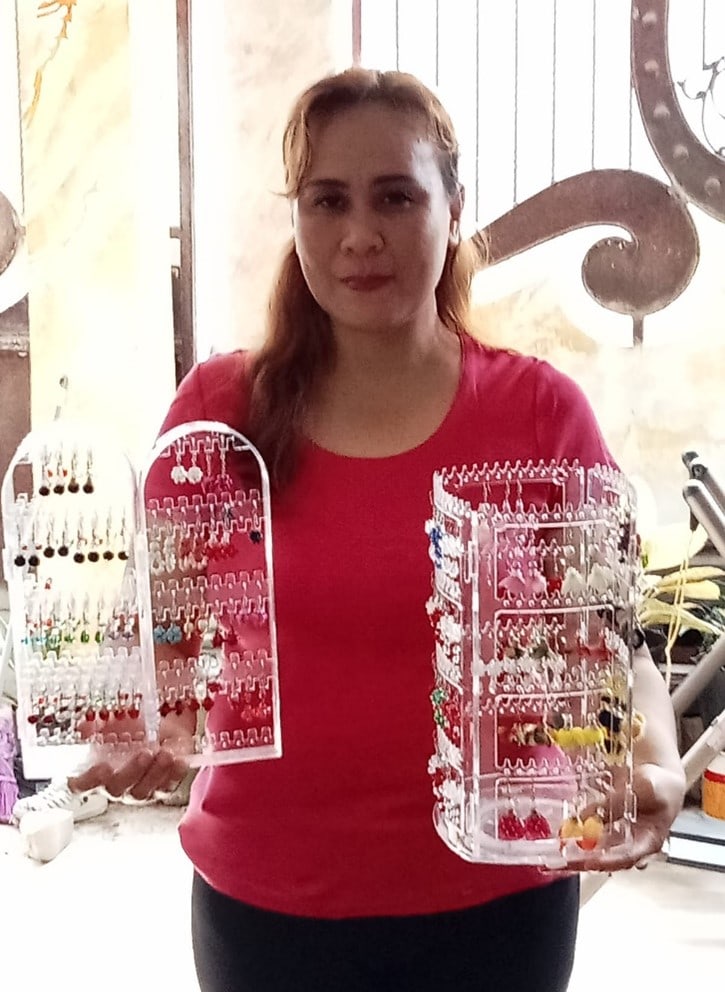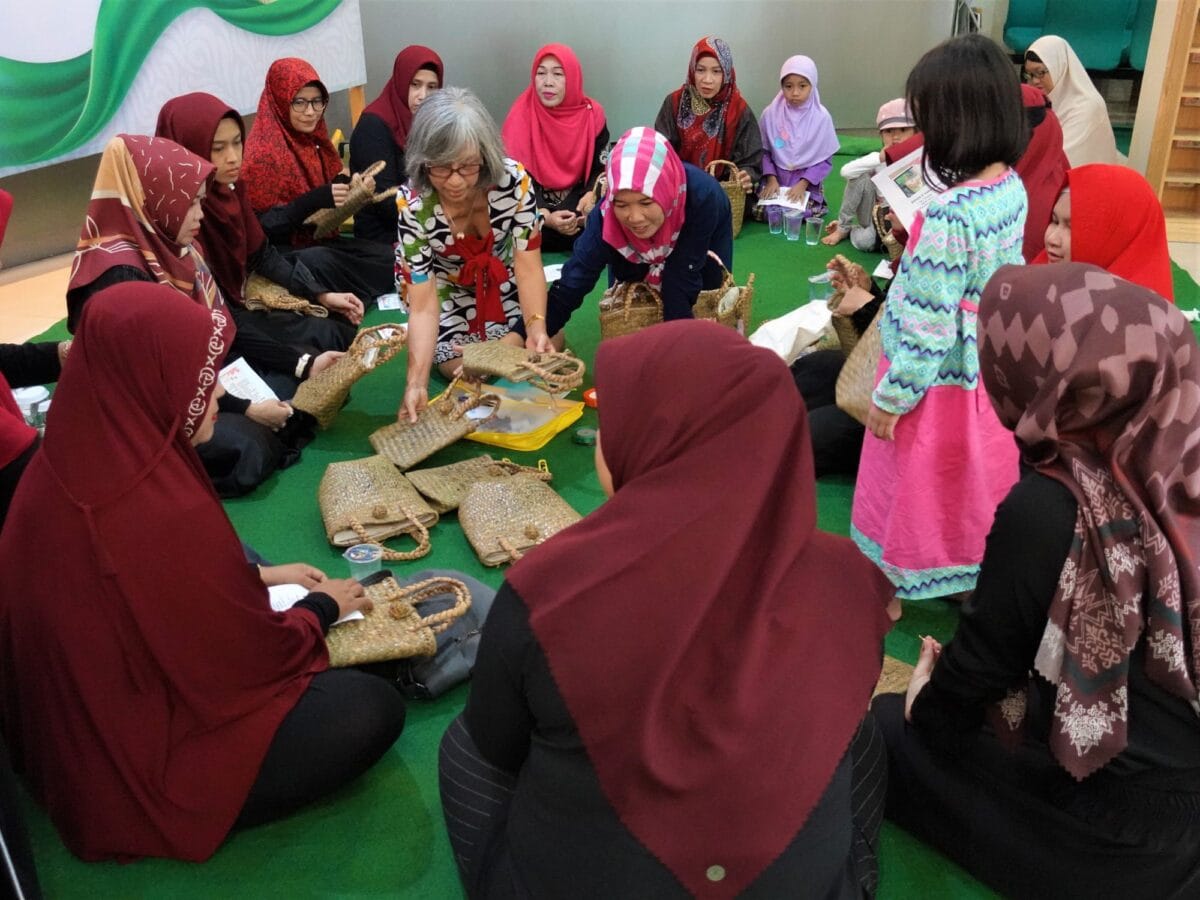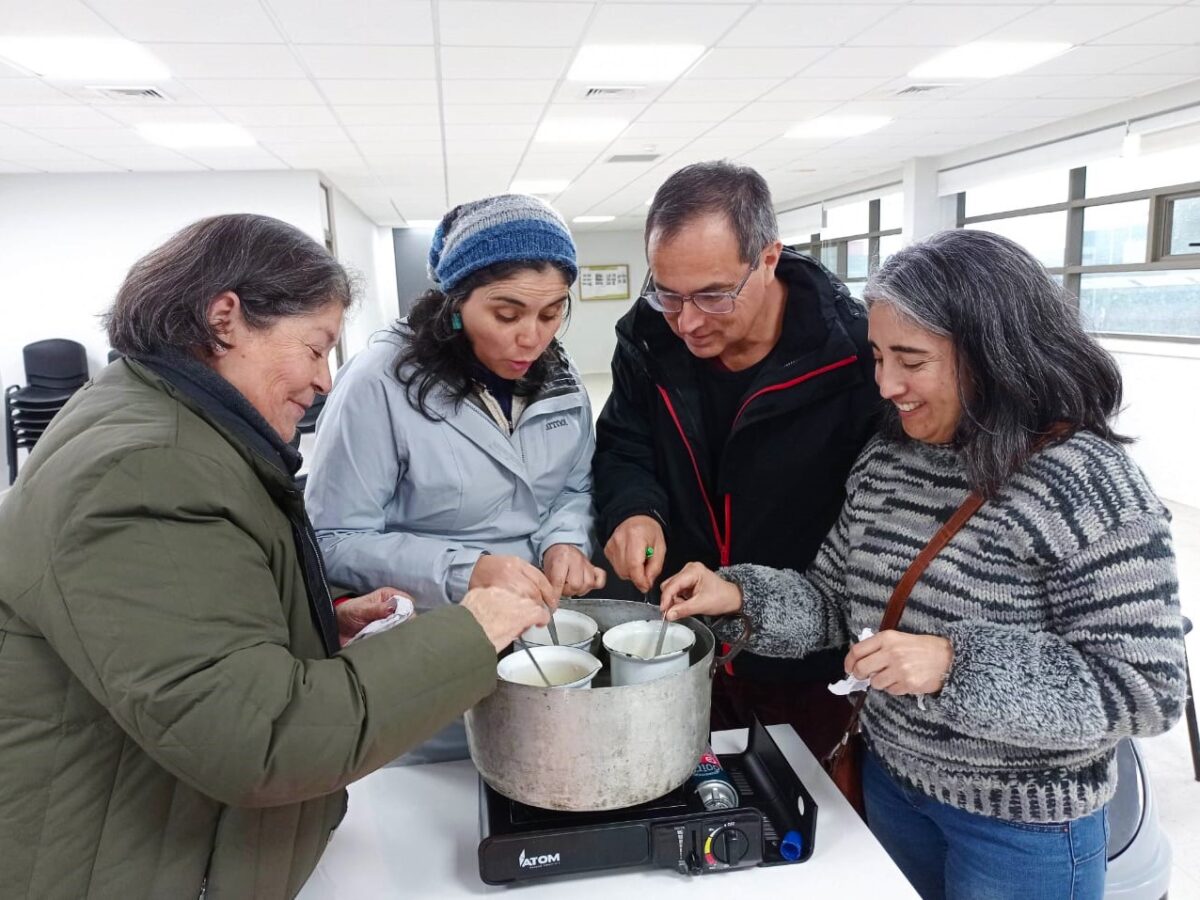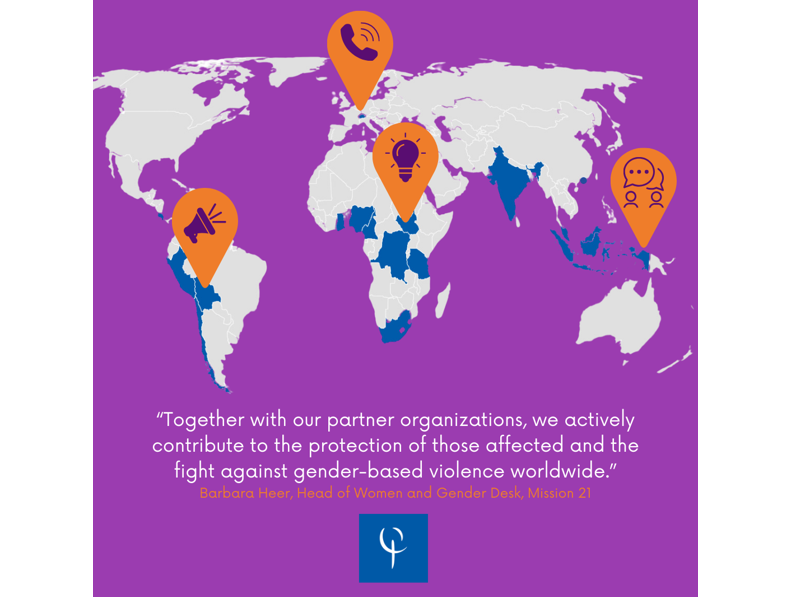In South Kalimantan, the long-standing project work of our partner organizations resulted in a success story in 2019: The interfaith cooperative "Borneo Braid" today supports producers to generate their own income with their handicraft.
In multi-ethnic and multi-religious Indonesia, inter-religious peace is an ongoing issue. The project area of Mission 21 in the south of the island of Borneo (Indonesian "Kalimantan") is, like the rest of the country, predominantly Muslim.
Coexistence does not work equally well everywhere: In the city of Banjarmasin, Christian and other religious minorities live relatively undisturbed next to their Muslim neighbors. In the city of Martapura, two hours away by car, however, there is a ban on the construction of churches and on public worship services.
Joint work leads to dialogue
In Banjarmasin, our partners, the Evangelical Church Kalimantan (GKE) and the Institute for Islamic and Social Sciences (LK3) for interreligious understanding for over two decades. An important part of her work does not directly concern the topic of religion, and yet it is continually present.
Since 2005, GKE and LK3 have been implementing income generation projects for women. In courses in traditional and modern crafts, such as the fabric dyeing technique "Sasirangan", women learn how to develop and produce their own products for sale. Apart from this, most of them have no income of their own.
Although the courses were initially offered by GKE alone, Muslim women from the area around LK3 also took part from the beginning. Later, LK3 also designed a project for income generation in the culinary field. Over time, women graduates independently joined interest groups to market products together. From this network, the cooperative "Borneo Braid" was born at the end of 2019.
From craftsmanship to digital marketing
One of the first to join "Borneo Braid" is Merie Chiteranata. Since her husband passed away, she has been a single mother of two children. To support herself and her family, she makes accessories from beads, crystals and gemstones. She does this with such skill and creativity that for the past six years she has been repeatedly asked by GKE to lead classes. In the cooperative, she now finds opportunities to expand and pass on her craft.

"Borneo Braid" supports producers in setting up their own small businesses, either individually or in production communities. It offers courses in various handicraft techniques, from the traditional fabric dyeing technique Sasirangan to sewing and braiding.
Courses on product development and digital marketing are also on the program. In addition, the cooperative grants loans as start-up capital, which a producer can use to purchase a sewing machine, for example.
For emergency situations, such as in January 2021, when a severe flood submerged Banjarmasin and large parts of South Kalimantan, the cooperative has set up a relief fund for affected members. The outbreak of the Covid- 19 pandemic brought a drop in income for producers*. Lower sales due to the economic crisis following the pandemic are still being felt. Nevertheless, "Borneo Braid" continues to develop. Today, the cooperative has about one hundred members and its success inspires plans for further cooperatives in neighboring regions. Through its cooperation with vocational high schools, it has also become an important platform for training and career entry for young aspiring artisans.
Solidarity and exchange
An important element of the cooperative is the pronounced cohesion among its members. Merie also attaches great importance to social exchange and takes an active part in the activities surrounding the cooperative. During religious festivities, the members of the cooperative visit each other.
Today, GKE, LK3 and the "Borneo Braid" cooperative are still working closely together to empower people like Merie, regardless of their religious affiliation, to secure their livelihood and lead a self-determined life.
Text: Annalena Durrer, Mission 21






